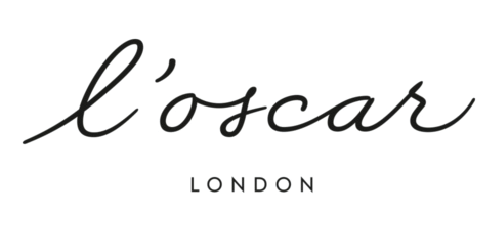
Coming into a lump sum of £100,000 opens a world of financial opportunity – but it also comes with a big question: what’s the smartest way to invest it?
Whether you’ve received an inheritance, sold a business, or built up long-term savings, the way you invest your £100k can determine your financial future.
In this guide, we’ll explore the best ways to invest £100k in 2025, balancing traditional assets, alternative investments, and long-term strategies.
Overview:
- Diversify Your Portfolio – Spread your investment across multiple asset classes to reduce risk and improve returns
- Consider Property Investment – Buy-to-let, REITs, or renovation projects can deliver passive income and capital growth
- Explore Stocks, Bonds & ISAs – Traditional investments remain reliable for long-term wealth building and tax efficiency
- Invest in Art for Tangible Returns – Art is a growing alternative asset with strong returns and cultural value
- Think Long Term – Compound growth and market resilience often reward patient investors over time
- Get Professional Advice – Tailored financial or art investment advice can help you make smarter, tax-efficient decisions
What to Consider Before Investing 100k
Before you start looking at investment options, take a step back and consider your situation. Here’s what to consider:
Your Goals
Take time to really think about your goals. Are you saving for retirement, aiming for passive income, or growing long-term wealth? Do you need access to your money in the short term, or can you commit for 5+ years?
Your Risk Tolerance
Your comfort with risk will shape your portfolio. Consider your age, financial obligations, and long-term objectives. Higher-risk investments like stocks or cryptocurrency offer greater potential returns, but come with volatility. Lower-risk options like bonds or ISAs offer stability but grow more slowly. Think about how much risk you’re willing to take on. Learn all about risk vs reward here. Your attitude to risk can determine the right investment avenue for you.
Taxes
Always consider tax implications like Capital Gains Tax, Income Tax, and ISA allowances. Tax-efficient investing can significantly impact your overall returns – so always factor in tax into your estimated profits.
Where to Invest £100k in 2025
Let’s break down some of the most popular and strategic options for investing a £100k lump sum:
| Investment Option | Key Benefits | Considerations |
|---|---|---|
| Stocks & Shares ISAs | Tax-free growth, flexible access | Market volatility, long-term focus |
| Property (Buy-to-Let, REITs) | Rental income, capital appreciation | Upfront costs, management, liquidity |
| Bonds (Govt, Corporate) | Stability, predictable income | Lower returns, inflation risk |
| Peer-to-Peer Lending | Higher yields, diversification | Borrower risk, platform risk |
| Art | Inflation hedge, tangible value | Illiquidity, expertise required |
| Alternative Assets | Portfolio diversification | Complexity, higher risk |
1 - Stocks and Shares
Investing in the stock market provides you with the opportunity to own shares in publicly traded companies.
Consider investing in:
- Index funds and ETFs for diversified exposure
- Blue-chip stocks for stability
- Dividend stocks for income
Platforms such as Vanguard and Hargreaves Lansdown make it easier than ever to invest in stocks.
2 - Property
Property can be a great way to invest a lump sum of money. Investing in real estate can offer long-term capital appreciation and rental income.
Consider investing in:
- Buy-to-let for passive income
- Real Estate Investment Trusts (REITs) for easier, hands-off entry
- Renovation projects for capital appreciation
Remember to factor in costs like stamp duty, maintenance, management fees, and potential vacancies.
3 - Bonds
Bonds are debt securities issued by governments or corporations. They offer fixed interest payments over a clearly defined period. They’re lower risk than stocks and can provide a steady income.
Consider investing in:
- Government bonds (gilts)
- Corporate bonds
- Bond funds for diversification
Bonds are a great choice to invest your £100k lump sum if you want lower volatility – but returns may be more modest.
4 - Peer-to-Peer Lending
Peer-to-peer lending is another great way to invest £100k. Peer-to-peer lending platforms allow you to lend money directly to borrowers - and earn interest.
This investment avenue can offer higher returns than savings accounts, especially with a higher interest rate. However, peer-to-peer lending can come with certain risks, such as borrower default and lack of liquidity. Be sure to conduct due diligence before lending money to others for profit.
5 - Art
Investing in art can be both financially and aesthetically rewarding. It can act as a hedge against inflation, and be a great way to diversify your portfolio. You can expect:
- Returns of up to 12% per year
- Portfolio diversification through tangible assets
- Art that retains value and offers emotional and cultural value
You can invest in art with Grove Gallery. Explore our advisory services or shop our originals for sale today.
We have art for under £100,000 available from top-rated artists such as Banksy, Andy Warhol, Damien Hirst and many more.
Why Adopt a Long-Term Mindset?
The most successful investors play the long game. Holding your investments for several years means you can benefit from:
- Compound growth
- Market recovery after downturns
- Lower transaction costs and taxes
Avoid making knee-jerk decisions based on short-term market noise – and make sure you regularly review your strategy without overreacting to temporary fluctuations.
Traditional vs Alternative Assets
| Traditional Investments | Alternative Investments |
|---|---|
| Stocks – Ownership in a public company | Hedge Funds – Private funds using various strategies for returns |
| Bonds – Fixed-income securities from governments or corporations | Private Equity – Investment in privately-held companies |
| Mutual Funds – Pooled investment vehicles | Venture Capital – Funding for early-stage, high-growth companies |
| Real Estate – Direct ownership of property | REITs – Companies managing income-producing real estate |
| Certificates of Deposit (CDs) – Time deposits with banks | Commodities – Physical goods like gold, oil, or agricultural products |
| Cash Equivalents – Low-risk, highly liquid assets (e.g. money market funds) | Cryptocurrencies – Digital or virtual currencies |
| Peer-to-Peer Lending – Platforms that connect individual lenders with borrowers |
- Want stability? Look toward bonds or ISAs.
- Interested in high-growth potential? Stocks, property, or even art may suit you.
- Looking to diversify? Combine both traditional and alternative assets to spread risk and optimise returns.
So, What is The Best Way to Invest 100k?
Unfortunately, there is no one-size-fits-all answer to investing £100,000…
But diversifying your portfolio, knowing your goals, and making smart choices is key. Whether you lean towards traditional routes like stocks and bonds, or want to branch into alternative investments like property or fine art, the best strategy is one that aligns with your risk appetite, timeframe, and future goals.
Looking for a smart, tangible way to invest part of your £100k? Art offers both aesthetic and financial returns. At Grove Gallery, we specialise in helping investors acquire museum-worthy pieces from iconic artists.
Investing 100k: FAQs
What is the safest way to invest £100k?
Some safer investment options include government bonds, savings accounts, and diversified index funds. These carry lower risk but also offer lower returns.
How can I invest £100k for passive income?
Consider buy-to-let property, dividend-paying stocks, or peer-to-peer lending. Art can also generate returns through appreciation over time!
Can I invest £100k in art?
Yes – £100k can secure museum-quality works from established artists. Art is increasingly recognised as a hedge against inflation and a valuable portfolio diversifier. Start here.
Should I invest all £100k at once?
It depends on your risk appetite. You can phase your investments over time (known as pound-cost averaging) or split it between short- and long-term options. Try investing in increments – check out our helpful guides on how to invest £10k, how to invest £30k, and how to invest £50k.






